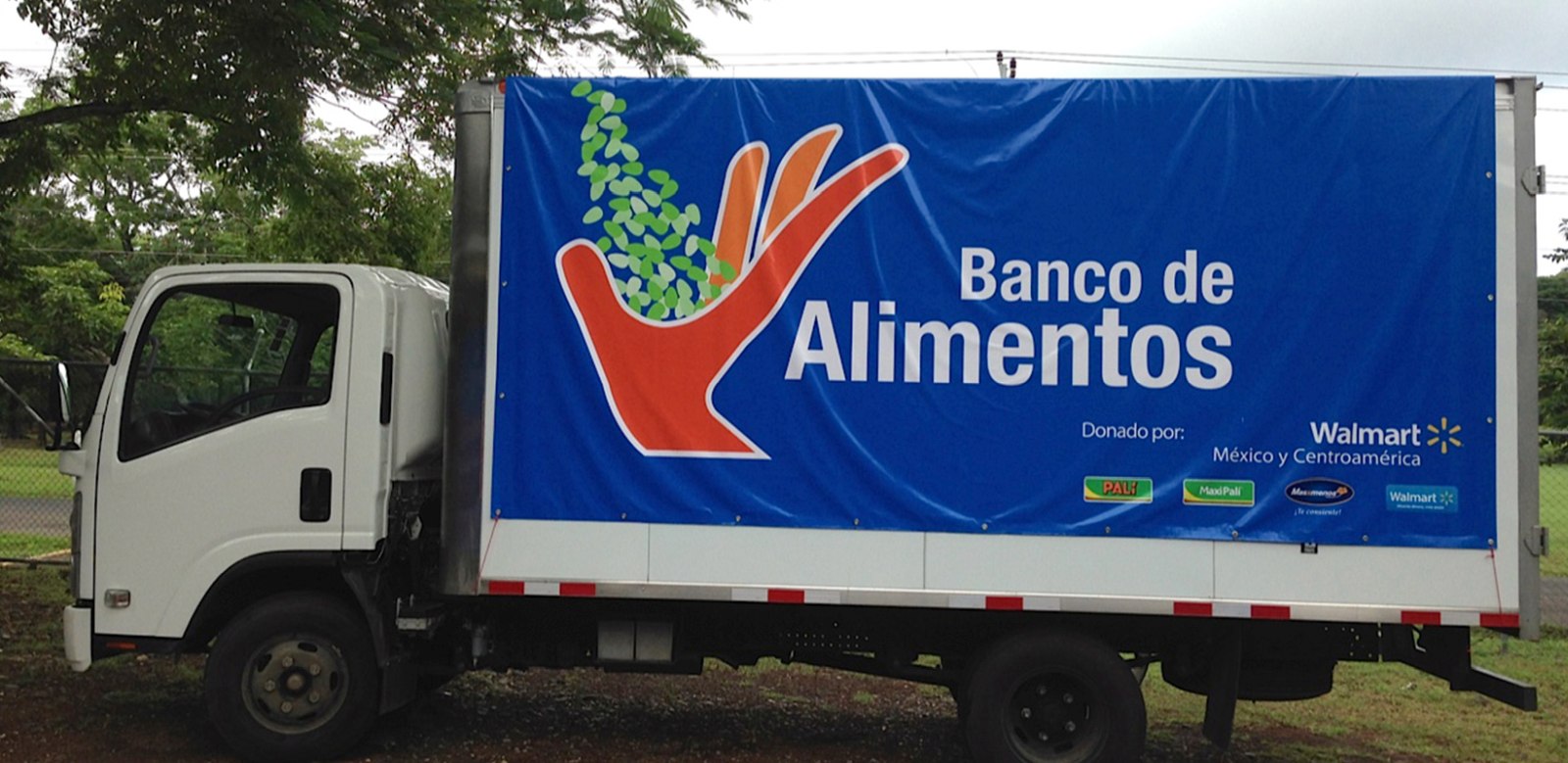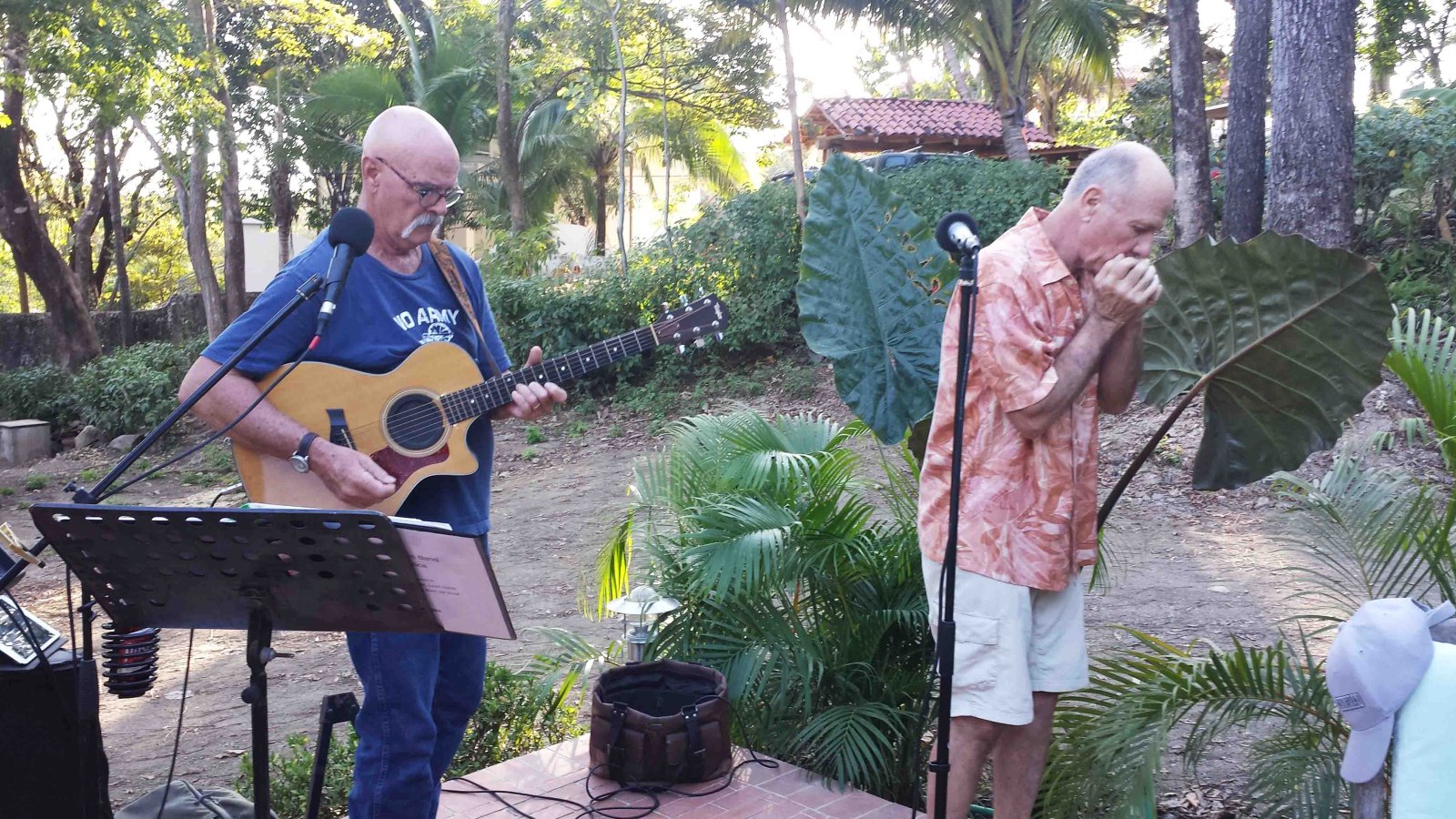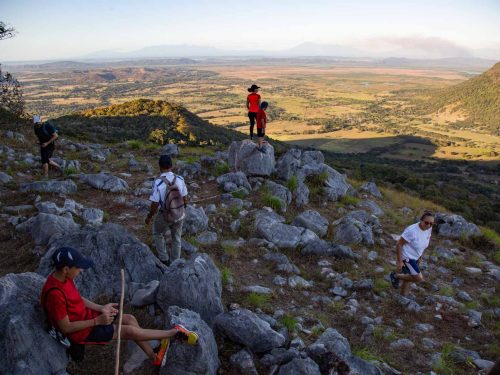
The food bank project was initiated in 2012 by the company Walmart; it began with the idea to collect food to help people and families in need. In Guanacaste it opened operations in October of 2014 and currently it benefits some 6,000 people in the cantons of Nicoya, Liberia and Santa Cruz.
The bank’s base of operations is in Huacas de Santa Cruz, and according to Jose Guadamuz, a member of the operations staff, since its beginning the bank has affiliated itself with various organizations through which support is channeled:
“The bank is like the bridge to bring food to people in need. We complete a socioeconomic analysis to guarantee that food gets to the right people, and we distribute through the organizations that are affiliated, such as homes for the elderly, daycare centers, development associations and others,” said Guadamuz.
For Guadamuz, participation by social organizations is very important, as in addition to distributing food, they are in charge of evaluating each canton’s priorities.
Food is distributed in Nicoya by the Peniely Methodist Church, in Nosara by the Nosara Food Bank, in Santa Cruz by the Salvation Army Church, the Santa Cruz Home for the Elderly and the Brasilito Association, among others, and in Liberia by the Ideal World Christian Association.
Guadamuz explained that various companies are providing food for the organization, including Pali, Supercompro, Dos Pinos, Grupo Walmart, Grupo GESSA and GRUMA.
Donations range from basic grains, such as rice and beans, to canned products such as tuna. Other items include milk, cereals, toilet paper, soap, toothpaste, clothes, deodorant, diapers and other hygienic and home necessities..
To date, the program has resulted in the collection of some twelve tons of food in Guanacaste.
One of the non-profit groups that is benefitting from the program is the Nosara Food Bank (Banco de Alimentos de Nosra), which receives food once per month.
According to Seidy Juarez, that support is added to what they are able to collect at local businesses, which is used to provide food to families in the district every month.
“We choose ten families per month in the district through a survey, to see the families’ priorities, especially those that have small children. We receive support from the Brasilito bank but also from the boxes in Nosara’s supermarkets; we have collection boxes so that customers can contribute,” said Juarez.
The items are transported for free by Freddy Alfaro Jimenez, owner of CR Terratour.
The shipper says that the truck is full with all kinds of items, from cleaning products to foods, and that if all of the merchandise were given a market value, it would be worth some ₡400,000-500,000 ($750-935).







Comments